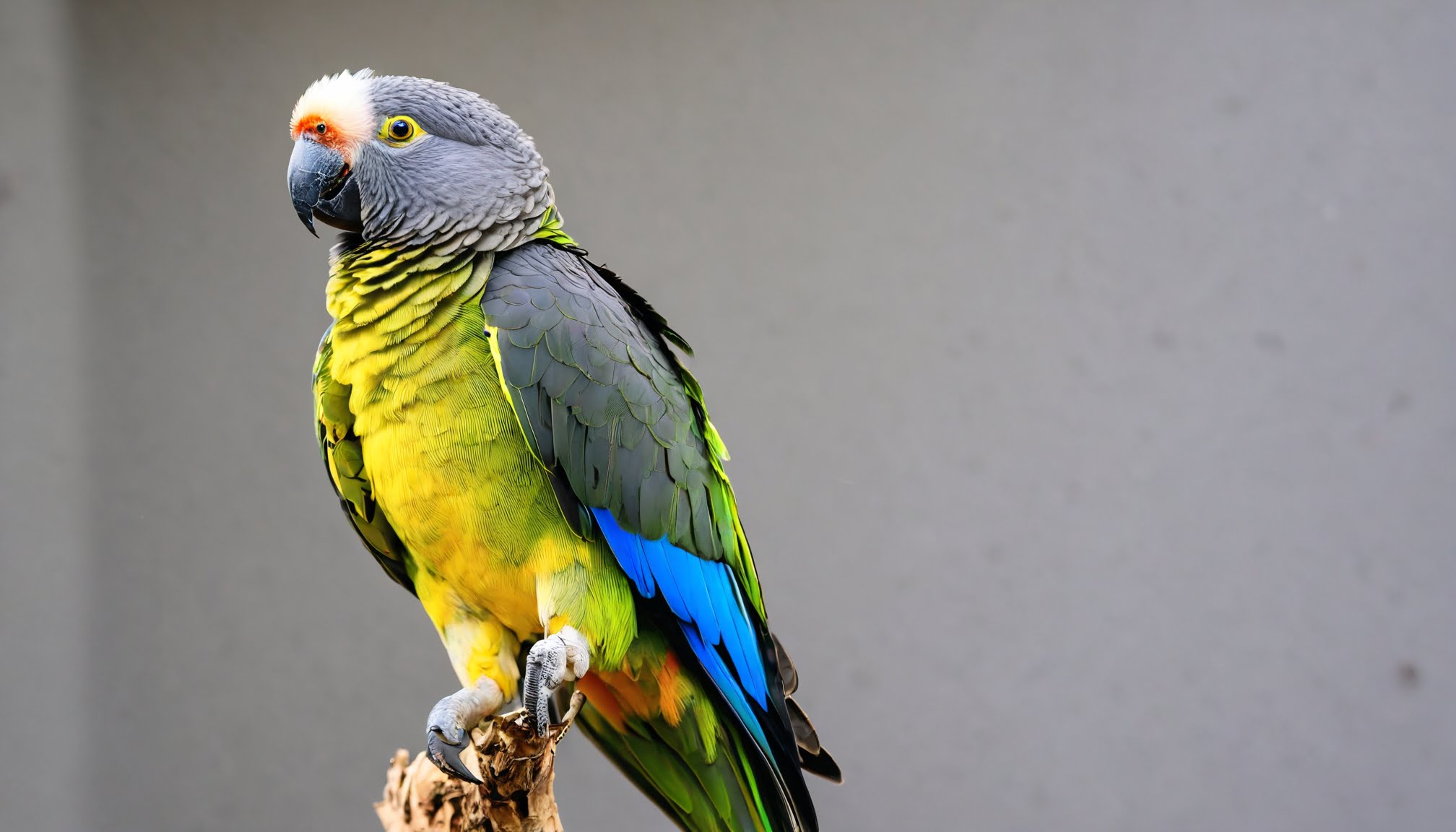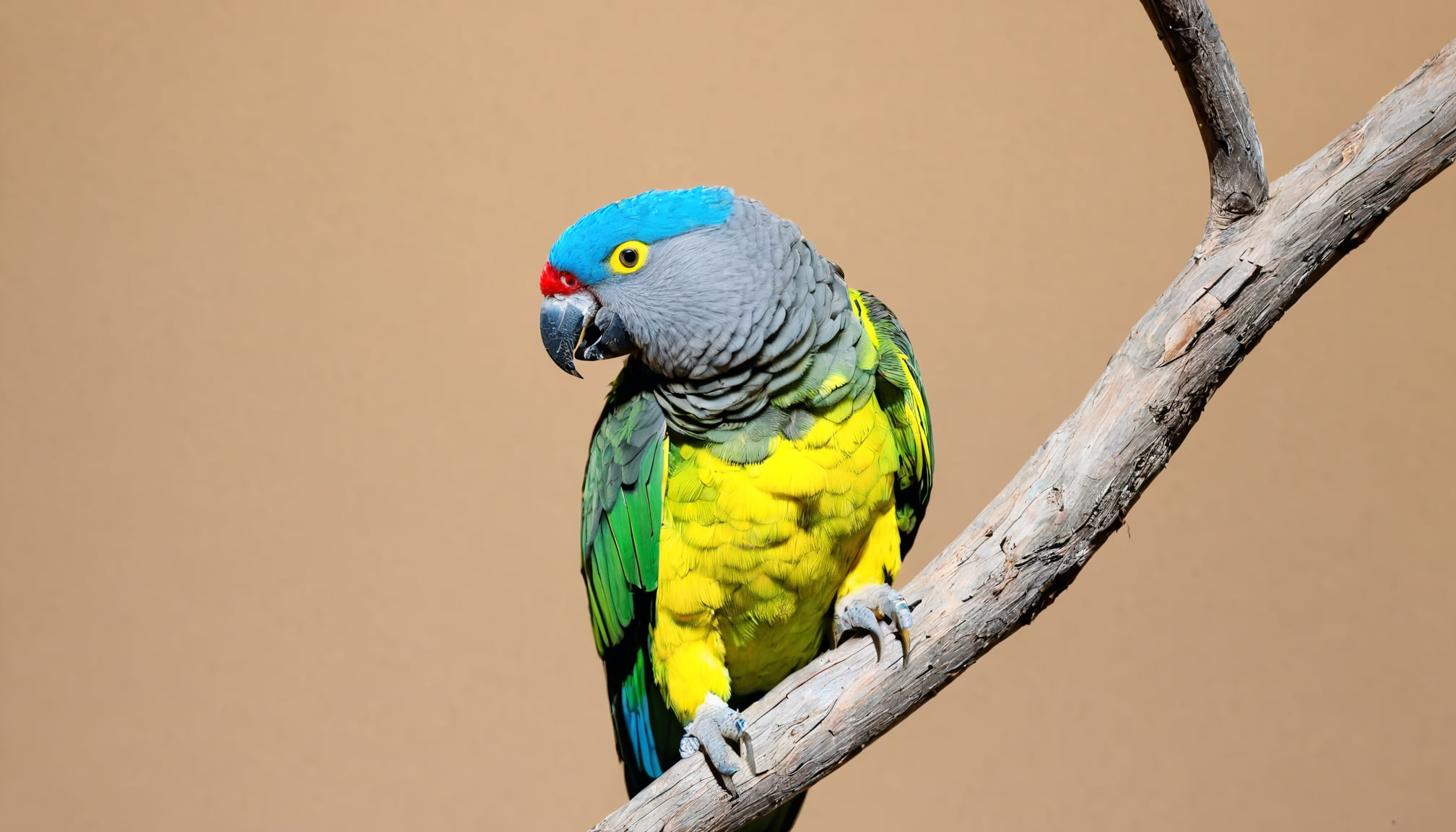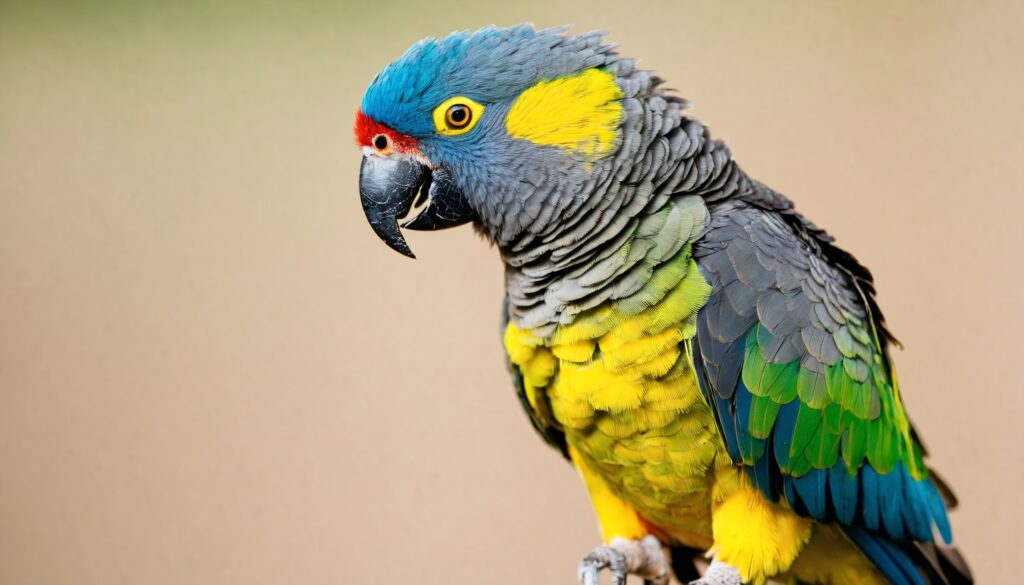Meyers Parrot are small, colorful, and full of personality. If you’re lucky enough to have one as a pet, you’ll want to ensure they’re as happy and healthy as possible.
Here are seven essential tips to help your Meyers parrot thrive in your home.
1. Provide a Spacious and Safe Cage
Your Meyers parrot will spend a lot of time in its cage, so it’s important to make sure it’s a comfortable space. Choose a cage that’s big enough for your parrot to stretch its wings, climb, and play.
The bars should be spaced closely enough to prevent any accidents, but wide enough to allow for climbing. Add a variety of perches and toys to keep your parrot entertained and engaged.
2. Offer a Balanced Diet
A healthy diet is key to a happy Meyers parrot., these birds eat a mix of seeds, fruits, and vegetables In the wild.
You should aim to replicate this in their diet at home. Offer a high-quality pellet as the base of their diet, and supplement it with fresh fruits and vegetables.
Avoid feeding your parrot avocado, chocolate, or caffeine, as these can be toxic.
3. Spend Quality Time Together
Meyers parrots are social birds and thrive on interaction with their human companions. Set aside time each day to bond with your parrot.
This could be as simple as talking to them, letting them perch on your hand, or playing with their toys together. Regular interaction strengthens your bond and build trust.
4. Provide Mental Stimulation
To keep your Meyers parrot happy, it’s important to keep their mind active. Offer a variety of toys that challenge their problem-solving skills, like puzzle toys or foraging toys.
keep the toys fresh and interesting by rotating them regularly to keep them fresh and interesting. You can also teach your parrot simple tricks or commands to keep them mentally engaged.

5. Maintain Proper Hygiene
Cleanliness is essential for your parrot’s health. Clean their cage regularly, including washing food and water dishes daily. Make sure to take out any fresh food that has not been eaten to prevent it from getting spoiled.
Additionally, provide your parrot with opportunities to bathe. Some parrots enjoy a gentle misting with water, while others prefer a shallow dish to splash in.
6. Ensure Proper Sleep
Like all creatures, Meyers parrots need plenty of sleep to stay healthy. Make sure your parrot has a quiet, dark place to sleep for 10–12 hours each night.
You can cover their cage with a breathable cover to help them feel secure and block out light.
7. Regular Vet Check-ups
My personal experience regular veterinary care is important for the health of your Parrot. Find a vet who specializes in birds and schedule annual check-ups to ensure your parrot is healthy.
Early detection of any potential health issues can make a big difference in treatment and recovery.
Conclusion
Taking care of a Meyers parrot is a rewarding experience. By following these seven essential tips, you’ll help ensure your feathered friend leads a happy, healthy life.
Remember, a happy parrot is one that’s well-cared for, loved, and mentally stimulated. Enjoy your time together, and watch your Meyers parrot thrive.

FAQs
People also ask
Do Meyers parrots make good pets?
Meyers parrots excellent pets for the right owner, and yes, they make excellent pets. Known for their calm and affectionate nature, these small parrots are less noisy than many other parrot species, making them a great choice for apartment living.
parrots are also highly social and enjoy interacting with their human companions, forming strong bonds over time.
With proper care, attention, and mental stimulation, a Meyers parrot can be a delightful and rewarding pet, bringing joy and companionship to your home.
How much does a Meyers parrot cost?
How long do Meyer parrots live?
parrots are known for their long lifespan, often living between 20 and 30 years with proper care.
Some even reach up to 35 years in captivity when provided with a balanced diet, mental stimulation, and regular veterinary check-ups.
Their impressive lifespan makes them a lifelong companion, emphasizing the importance of commitment and care from their owners.

